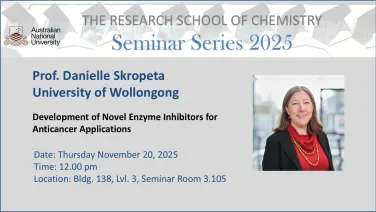RSC School Seminar - Prof. Hao Li (Tohoku University)
Title: Design of Catalysts Realized by Materials Theory and Machine Learning
Event series
Content navigation
Description

Title: Design of Catalysts Realized by Materials Theory and Machine Learning
Abstract
The design of catalysts for industrially important reactions is essential for a sustainable future. However, conventional catalyst search relies on the trial-and-error process from experiments. Meanwhile, theoretical analysis of catalysis is sometimes too complicated to develop a clear guideline for experiments. This talk will discuss an avenue to realize a rational design of catalysts combining new materials theory, machine learning (ML) methods, and experiments. In particular, we will discuss i) how to reduce the complexity in catalyst design by materials theory and ii) how to develop new ML-based methods (i.e., new package, model, and algorithm) to accelerate catalysis simulation. This talk will show the predictive power of theory in electrochemical and thermal catalysis and the design of an “electron-refinery” strategy by transforming high-temperature thermal catalysis into low-temperature electrocatalysis. Finally, we will discuss a framework for the practical design of catalysts combining materials theory, catalyst screening, computational methodology development, and experiments (Figure 1).
Figure 1. Summary of the Li Group’s catalyst design framework consisting of catalysis theory, AI-based methodology developments, and experimental verifications.

Key reference:
H. Li et al., "Analysis of the Limitations in the Oxygen Reduction Activity of Transition Metal Oxide Surfaces", Nature Catalysis, 2021, 4, 463
Location
Join zoom meeting: https://anu.zoom.us/j/89288949539?pwd=MUhaZVlEeEpGYnBQRUg4NVU2cFFnQT09
Meeting ID: 892 8894 9539
Password: 671045

